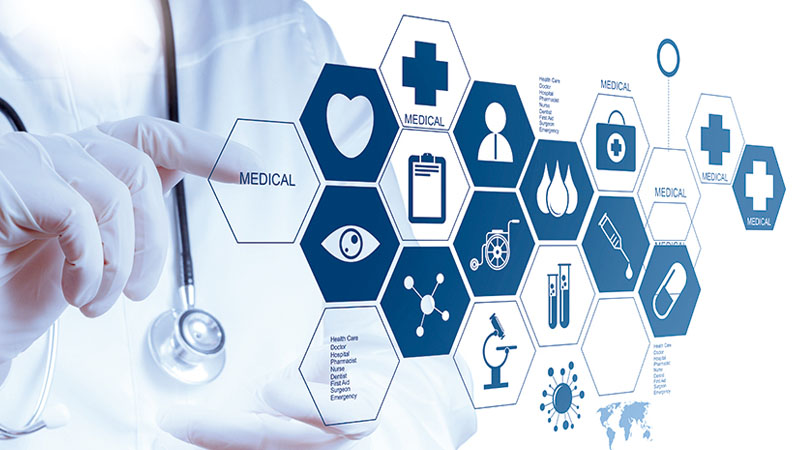How Big Data Will Tackle Future Healthcare Crises


The healthcare industry stands on the brink of a revolution driven by big data. As the global population continues to grow and age, healthcare systems are increasingly strained by rising costs, resource shortages, and an ever-expanding range of medical conditions. Big data, defined by its vast volume, velocity, and variety, holds the promise of transforming healthcare by providing deeper insights, improving patient outcomes, and optimizing resource allocation. This article explores how big data can address the healthcare crisis, detailing its potential applications, challenges, and future implications.
How Big Data Can Help Fight the Healthcare Crisis in the Future
1. Enhancing Disease Prevention and Early Detection
One of the most significant benefits of big data in healthcare is its potential to enhance disease prevention and early detection. By analyzing large datasets from electronic health records (EHRs), wearable devices, and genomic information, healthcare providers can identify patterns and risk factors associated with various diseases. For instance:
- Predictive Analytics: Big data analytics can predict disease outbreaks and identify individuals at high risk of developing chronic conditions such as diabetes or heart disease. Algorithms analyze historical health data, lifestyle factors, and environmental conditions to forecast potential health issues before they become critical.
- Genomic Data Analysis: The integration of genomic data with clinical information can lead to personalized medicine, where treatments and preventive measures are tailored to an individual’s genetic makeup. This approach can improve early diagnosis and targeted prevention strategies for genetic disorders and cancers.
2. Improving Treatment and Personalizing Care
Big data enables a shift from a one-size-fits-all approach to personalized medicine, where treatments are customized based on individual patient profiles. This personalization can lead to more effective and efficient care:
- Precision Medicine: By analyzing data from various sources, including patient history, genomics, and treatment outcomes, healthcare providers can develop personalized treatment plans that consider the unique characteristics of each patient. This approach can enhance treatment efficacy and reduce adverse drug reactions.
- Real-Time Monitoring: Wearable devices and IoT sensors generate real-time health data, allowing for continuous monitoring of patients with chronic conditions. This data can be used to adjust treatment plans dynamically and provide immediate intervention when necessary, leading to better management of chronic diseases and improved patient outcomes.
3. Optimizing Resource Allocation and Reducing Costs
Big data can also play a crucial role in optimizing resource allocation and reducing healthcare costs:
- Operational Efficiency: Analyzing big data can help healthcare organizations streamline operations, optimize staffing, and manage hospital resources more effectively. Predictive analytics can forecast patient admission rates, enabling better planning and resource allocation.
- Cost Reduction: By identifying patterns in treatment effectiveness and patient outcomes, big data analytics can help reduce unnecessary procedures and hospital readmissions. This approach not only lowers costs but also enhances the overall quality of care.
4. Advancing Research and Development
Big data accelerates research and development in healthcare by providing researchers with vast amounts of data to analyze:
- Drug Discovery: Big data can expedite the drug discovery process by analyzing data from clinical trials, patient records, and molecular research. Researchers can identify potential drug candidates more efficiently and predict their efficacy and safety.
- Clinical Trials: Big data enables more efficient design and execution of clinical trials. Researchers can identify suitable participants based on comprehensive data analysis, leading to more accurate and timely trial results.
5. Enhancing Public Health and Policy Making
Big data can significantly impact public health and policy-making by providing valuable insights into health trends and patterns:
- Epidemiology: Big data analytics can track and analyze disease outbreaks, helping public health officials respond quickly and effectively. This capability is crucial for managing pandemics and preventing the spread of infectious diseases.
- Policy Development: Data-driven insights can inform healthcare policy decisions, such as resource allocation, health interventions, and preventive measures. Policymakers can use big data to identify areas of need and develop strategies to address public health challenges.
Challenges and Considerations
While big data holds immense potential, several challenges must be addressed to realize its benefits fully:
- Data Privacy and Security: The use of big data in healthcare raises concerns about patient privacy and data security. Ensuring that sensitive health information is protected and used ethically is critical to maintaining patient trust and complying with regulations such as HIPAA.
- Data Integration and Interoperability: Healthcare data comes from various sources, including EHRs, wearables, and genomic databases. Integrating and standardizing this data to create a comprehensive and interoperable system is essential for effective analysis and decision-making.
- Data Quality and Accuracy: The accuracy and reliability of big data analyses depend on the quality of the data collected. Ensuring that data is accurate, complete, and up-to-date is crucial for making informed decisions and providing effective care.
- Technological and Skills Gap: Implementing big data solutions requires advanced technology and skilled professionals. Addressing the technological and skills gaps in healthcare organizations is essential for leveraging big data effectively.
Future Implications
The future of big data in healthcare is promising, with several emerging trends and technologies poised to shape its impact:
- Artificial Intelligence and Machine Learning: AI and machine learning algorithms will continue to enhance big data analytics, enabling more accurate predictions, personalized treatments, and improved patient care.
- Blockchain Technology: Blockchain can provide secure and transparent management of healthcare data, addressing privacy and security concerns while facilitating data sharing and interoperability.
- Enhanced Patient Engagement: Big data will enable more personalized and engaging patient experiences, empowering individuals to take an active role in their health management and making healthcare more patient-centered.
Conclusion
Big data has the potential to transform healthcare by enhancing disease prevention, personalizing care, optimizing resource allocation, advancing research, and informing public health policy. While challenges such as data privacy, integration, and quality must be addressed, the benefits of big data in healthcare are substantial. By harnessing the power of big data, we can pave the way for a more efficient, effective, and equitable healthcare system that better addresses the growing healthcare crisis and improves the quality of care for patients worldwide.
